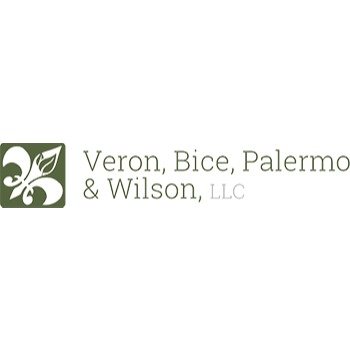Best Toxic Mold Lawyers in Lake Charles
Share your needs with us, get contacted by law firms.
Free. Takes 2 min.
List of the best lawyers in Lake Charles, United States
About Toxic Mold Law in Lake Charles, United States
Toxic mold refers to a type of mold that produces toxic substances known as mycotoxins. In Lake Charles, United States, laws regarding toxic mold are in place to protect individuals from exposure and ensure proper remediation. If you suspect toxic mold in your property, it's important to understand the legal aspects surrounding this issue.
Why You May Need a Lawyer
Legal assistance may be necessary in various situations involving toxic mold, including:
- When a landlord fails to address a mold problem, causing harm to tenants
- When a property owner denies responsibility for mold-related health issues
- When insurance companies wrongfully deny claims related to toxic mold
- When disputes arise regarding the extent of mold contamination and appropriate remediation
Local Laws Overview
Lake Charles has specific regulations related to toxic mold, including:
- Landlords are legally required to maintain safe and habitable premises, which includes addressing mold issues promptly
- Tenants must notify landlords about mold problems in writing
- Landlords are obligated to investigate and remediate mold issues within a reasonable timeframe
- Property owners are liable for damages resulting from toxic mold exposure
- Insurance policies may have specific provisions regarding coverage for mold-related claims
Frequently Asked Questions
Q: How can I determine if the mold in my property is toxic?
Mold testing conducted by professionals can determine the presence of toxic mold species. It is advisable to consult with a mold specialist or environmental consultant for accurate testing results.
Q: Can I sue my landlord for mold-related health issues?
If your landlord was aware of a mold problem and failed to address it within a reasonable timeframe, resulting in harm to your health, you may have grounds for a lawsuit. Consult with an attorney to evaluate the specific circumstances of your case.
Q: Is there a time limit for filing a toxic mold lawsuit?
Yes, there is a statute of limitations that determines the timeframe within which you can file a lawsuit for toxic mold exposure. It's crucial to consult with an attorney promptly to ensure compliance with the relevant time limit.
Q: Will my homeowner's insurance cover mold-related damages?
It depends on the terms of your insurance policy. Some policies may have exclusions for mold-related claims, while others provide coverage. Review your policy or consult with an insurance attorney to understand your coverage.
Q: Are there government agencies in Lake Charles that can assist with toxic mold issues?
The Louisiana Department of Health is a valuable resource for information on mold and can provide guidance on reporting mold concerns and finding qualified professionals for testing and remediation.
Additional Resources
Here are some helpful resources related to toxic mold:
- Louisiana Department of Health - Mold Information
- U.S. Environmental Protection Agency - Mold Resources
- Louisiana Department of Insurance
- Louisiana Legal Resources - Mold & Property
Next Steps
If you require legal assistance with a toxic mold issue, follow these steps:
- Document and photograph the mold problem
- Notify your landlord or property owner in writing about the issue
- Consult with a mold specialist or environmental consultant for testing
- Contact an experienced attorney specializing in toxic mold cases
- Gather all relevant documents, including leases, communication records, and medical reports
- Follow your attorney's guidance to pursue legal action or negotiate a settlement
Lawzana helps you find the best lawyers and law firms in Lake Charles through a curated and pre-screened list of qualified legal professionals. Our platform offers rankings and detailed profiles of attorneys and law firms, allowing you to compare based on practice areas, including Toxic Mold, experience, and client feedback.
Each profile includes a description of the firm's areas of practice, client reviews, team members and partners, year of establishment, spoken languages, office locations, contact information, social media presence, and any published articles or resources. Most firms on our platform speak English and are experienced in both local and international legal matters.
Get a quote from top-rated law firms in Lake Charles, United States — quickly, securely, and without unnecessary hassle.
Disclaimer:
The information provided on this page is for general informational purposes only and does not constitute legal advice. While we strive to ensure the accuracy and relevance of the content, legal information may change over time, and interpretations of the law can vary. You should always consult with a qualified legal professional for advice specific to your situation.
We disclaim all liability for actions taken or not taken based on the content of this page. If you believe any information is incorrect or outdated, please contact us, and we will review and update it where appropriate.








